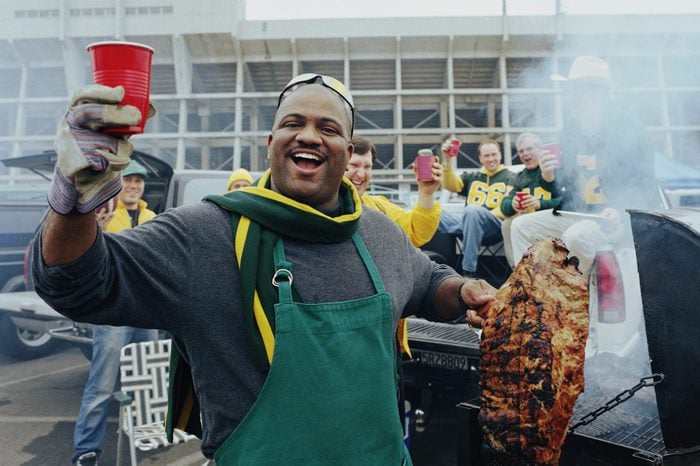
Labor Day is behind us, which for millions of Americans means one thing: Football season. Tailgating—named, aptly, as a gathering in a sports stadium parking lot with food and drinks sometimes out of the back of a car or truck—is the biggest highlight of the season for many die-hard fans. But along with the carefree spirit of day-drinking and team chants can come food poisoning hazards that can put a damper on the stories about this weekend you and your friends will tell for years.
Trevor Craig specializes in microbiology as the corporate director of technical training and consulting for Microbac Laboratories, a third-party product and operations safety testing company. For wings, ribs, dogs, burgers and whatever else you’ve got cooking, Craig reveals the top five reminders so that Monday morning’s group text is all about what a winning host you are.
Deion Sanders Shares His #1 “Old School” Rule That Led to 2 Super Bowl Wins
Get healthy-living insights all year round with The Healthy @Reader’s Digest newsletter
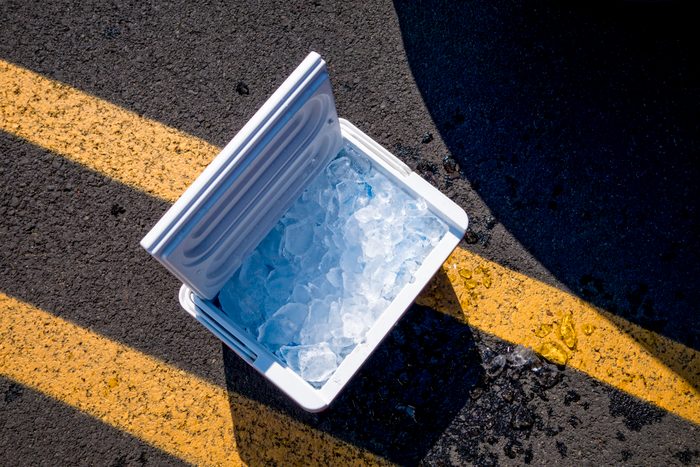
Tailgating food safety
1. Keep food at the right temperature
“One of my biggest concerns is keeping food out of the danger zone,” Craig says. “Cold foods should be kept cold, and hot foods should be kept hot. If they are out of their appropriate temperatures for more than one or two hours, they can get really warm which can lead to increased bacterial growth and risk.”

2. Avoid cross-contamination
Craig says that when you’re setting up a makeshift cooking camp out there, it’s still crucial to make sure the people who are preparing your food are washing their hands, using clean utensils and keeping uncooked food away from the cooked food. “Sometimes, when we are making a ‘kitchen’ somewhere, we end up not using safety precautions and don’t have the same items available to us that we would in a real kitchen,” he explains. “Using the same trays and containers that were used for raw meat for the finished cooked product or using knives or utensils that were used on raw food then using for finished food are examples of this. Having some way to wash your hands is also important.”
So remember to add a pack of hand-sanitizing wipes to your cart. Also: “Make sure people have utensils to get the food they want and are not just using their dirty hands which can accidentally contaminate all of your other food,” he says. What sharp host can’t always use an extra set of tongs?
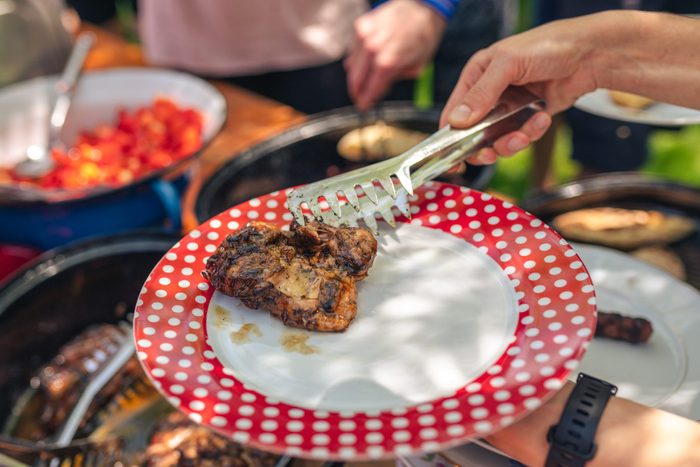
3. Manage your open-source food
“A lot of times tailgating food can sit out for a while, meaning it is probably not being kept at the right temperature—which means it can also be exposed to a lot of things that normally aren’t a risk at home,” Craig says. “Bugs and flies are a source of contamination, as well as people.”
In other words? Keep covers on everything and encourage your guests to pop them back on after they load their plate.
How to Avoid Mosquito Bites: The 6 Most Effective Products in 2023, According to Reviews
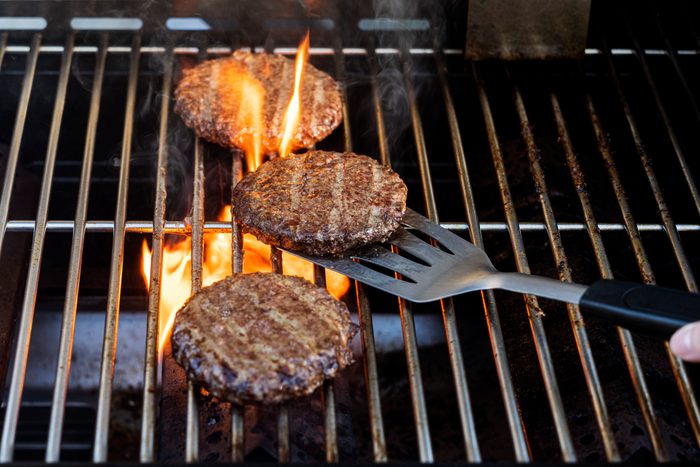
4. Cook food completely
You know that friend who brags about how rare he likes his beef…or the one who thinks eating pork or chicken while it’s pink makes them tough? No—even when kickoff’s getting close, make sure to cook everything though. “Sometimes when cooking food at a tailgate, it can get rushed, which makes cooking food completely a concern,” he says. “Make sure food is cooked completely and reaches appropriate temperatures by using a cooking thermometer.”
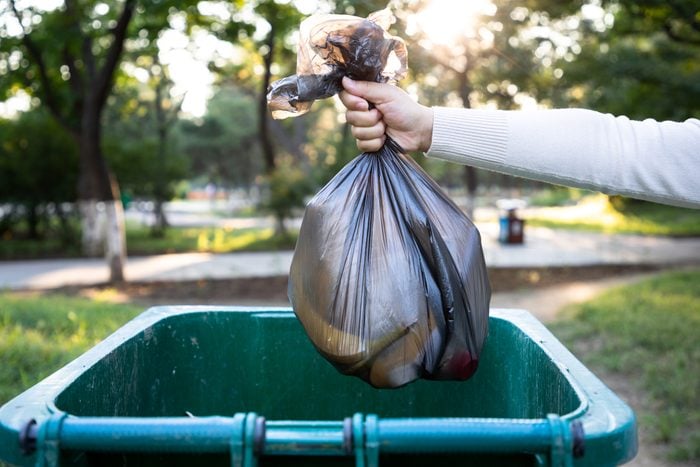
5. Toss leftovers if you’re not sure
We are huge fans of avoiding food waste, but don’t take one for the team by eating something that’s sat out. “If you aren’t sure what the food has been exposed to or if it’s been in the right temperature, toss it. It’s not worth the risk of getting sick.” Consider bringing along a compost-friendly trash bag, which are easy to find, for scraps and questionable leftovers.
